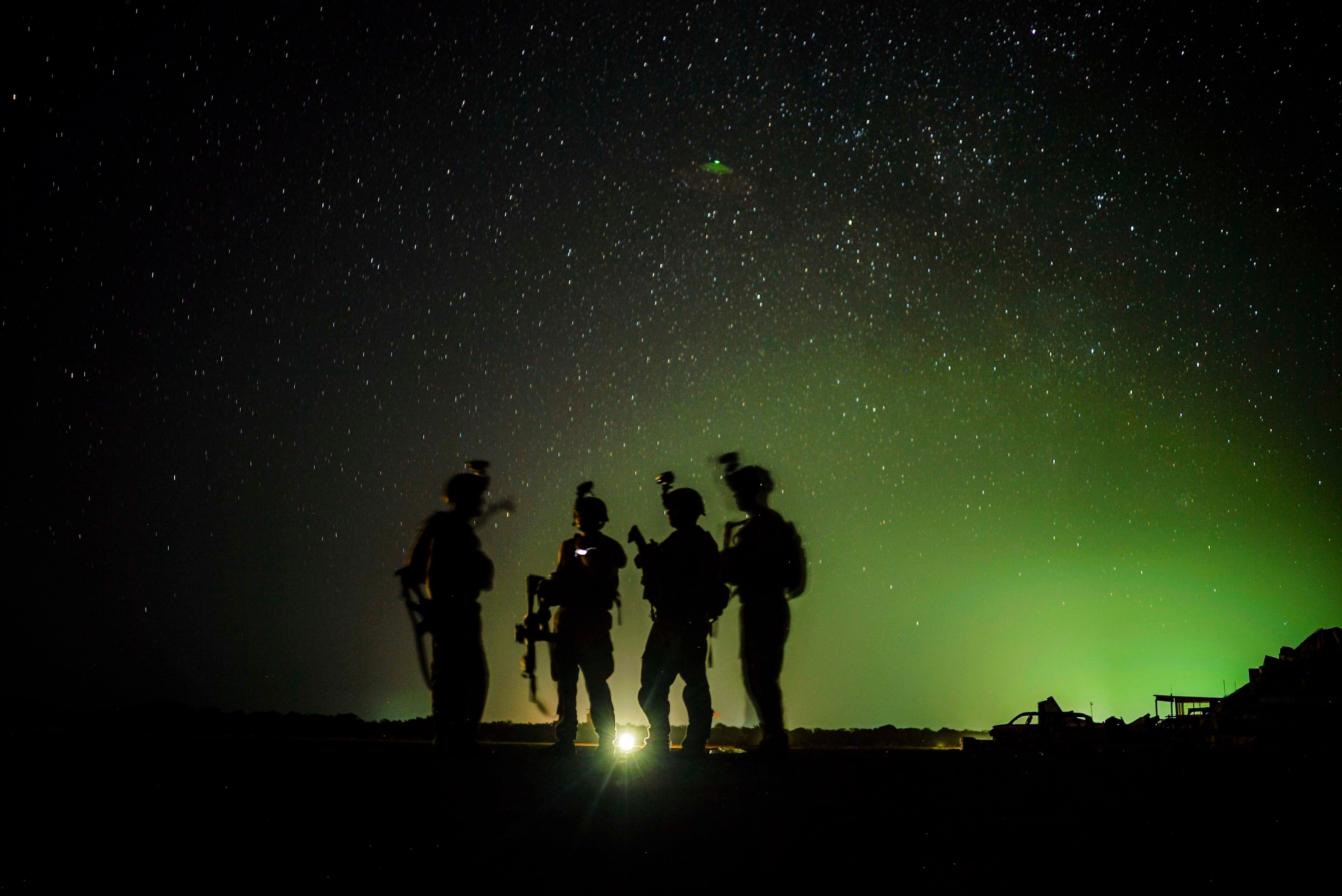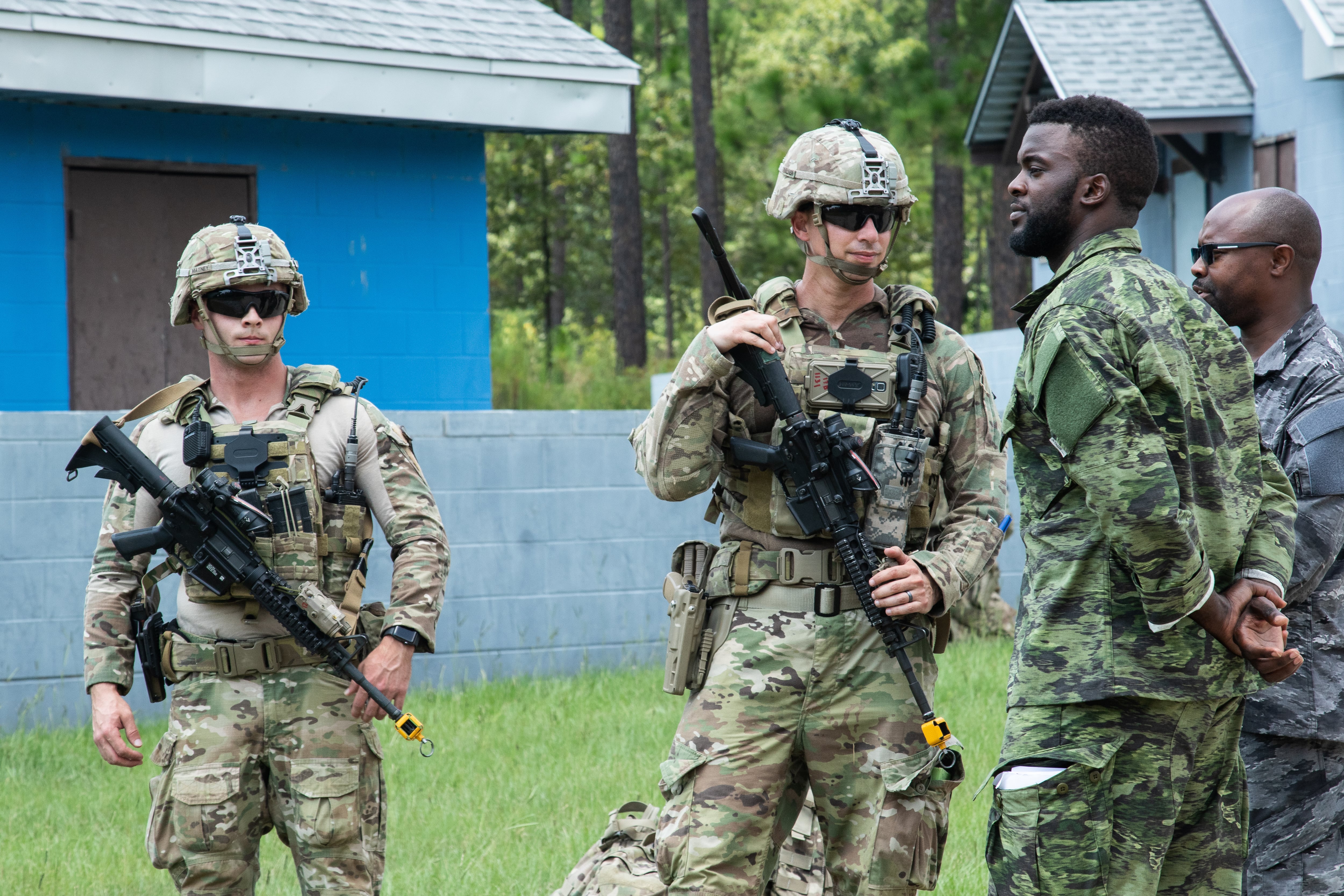The Army’s security force assistance brigades are preparing for more global missions in the coming months, the outgoing commander of the SFAB enterprise, and his successor, said in interviews last week.
Some new missions will dispatch SFAB advisers to more austere and far-flung locations where the U.S. military footprint is less developed. That presents opportunities to work with new foreign militaries, but it can also complicate how advisers are protected and sustained.
“Just as likely in the future, we will have small countries in the Pacific, small countries in Africa, small countries in South America and Central America where we may only have one team,” said Brig. Gen. Scott Jackson, who will lead the division-level Security Force Assistance Command going forward. “It could be four people; it could be 12 people, depending on the effect we’re trying to achieve.”
The SFABs have already taken on missions to advise foreign troops on everything from coordinating air support to sustaining logistics on patrol. But so far, most of those efforts have been focused on Afghanistan.
That’s now changing. As the Army aligns each of its five active-duty SFABs to a different combatant command, specialized advisory teams will be offered up to regional leaders. Personnel from the sixth SFAB, a National Guard unit, will be available to all five COCOMs, said Brig. Gen. Mark H. Landes, the outgoing commander of Security Force Assistance Command.
“One [SFAB] is already aligning with [Indo-Pacific Command], and then another one is taking over the mission for [Africa Command]. So we’re already seeing regional alignment,” Landes added. “I won’t give a specific date on when all five will be regionally aligned, but it’s within months, not years.”
Landes’ successor, Jackson, led 1st SFAB out of Fort Benning, Georgia, during a maiden deployment to Afghanistan. He will take the helm as SFABs transition to “more of a global role,” he explained.
“Afghanistan was a very narrowly scoped mission, by intent. But now, as we look outside Afghanistan … you’re really going to see a huge return on investment,” Jackson said. “Now, we’re operating more in the competition phase. You know, a more permissive environment.”
New missions on new continents can present challenges, though.
RELATED

Advisers from Jackson’s own SFAB were recently tapped to begin working with foreign forces outside Afghanistan. An advising team was dispatched to Africa this spring, where they taught Senegalese troops logistics and vehicle recovery. Another company-sized element from his brigade was sent to Colombia in support of an “enhanced counter-narcotics mission” that was announced by President Donald Trump April 1.
“What we’re looking at, really, is operational and intelligence processes within our partner forces,” Jackson said of the Colombia assignment. “We are not accompanying host nation forces. That is not our job. We are there to look internally at those formations and make their processes better.”
Advising was also the mission in Afghanistan, but even that came with sporadic combat, including an insider attack that felled Command Sgt. Maj. Timothy Bolyard in 2018, a senior enlisted SFAB adviser. Other locations will likely be safer, but some countries still present unexpected risks, as evidenced by the January raid by al-Shabab militants on Manda Bay Airfield, in Kenya, that took the life of Spc. Henry Mayfield Jr.
Unlike Afghanistan, the U.S. presence in other parts of the world lacks a network of bases, supply chains and air support.
Chairman of the Joint Chiefs Gen. Mark Milley acknowledged that reality during a congressional hearing in February, saying the infrastructure available to African-aligned SFAB advisers is “going to be very austere.”
Jackson said the risks are well-understood by his troops, who hold the same standards of medical care and force protection even when the conditions change.
“Are we changing the way we do business? Yeah, we have to change the paradigm in which we think through these problem sets,” Jackson said. “But, again, the standard still remains the standard.”

In Afghanistan, one standard was a so-called “golden hour,” meaning wounded troops should be whisked off the battlefield to lifesaving care within the first 60 minutes of being injured. To replicate that elsewhere, SFAB advisers might not be relying on UH-60 helicopters. Instead, they’ll have to make alternative plans, like a ground evacuation to an embassy-approved hospital nearby, according to Jackson.
Outside Afghanistan, there will also be less contractor support. SFAB advisers will likely be eating more local food and relying on partner force infrastructure.
“That’s exactly the model we strove for in Africa,” said Jackson, whose SFAB unit was the first to send troops there. “We put forces co-located with host nation forces, on their bases, living in their barracks, eating their food. … It produces a great, solid relationship.”
What each SFAB does abroad will vary depending on the needs of combatant commands and regional militaries. Developing enlisted leadership among African partner nations, for instance, has been a priority on the continent.
“That may be an adviser team embedded near the equivalent of an infantry school in Kenya,” Jackson said. “You’re looking at the systems and processes to improve the professionalization of the force, not the tactical application of operational forces.”
The goal, regardless of where combatant commands ask SFAB teams to venture, is to make sure they’re there “on a persistent basis” to build lasting relationships, Jackson added.
“One team, operating semi-autonomously in support of a country led by a single officer. To me that is what the beauty and the power of the SFAB is,” he said. “The next year is really going to be an exciting time for the SFABs.”
Kyle Rempfer was an editor and reporter who has covered combat operations, criminal cases, foreign military assistance and training accidents. Before entering journalism, Kyle served in U.S. Air Force Special Tactics and deployed in 2014 to Paktika Province, Afghanistan, and Baghdad, Iraq.





